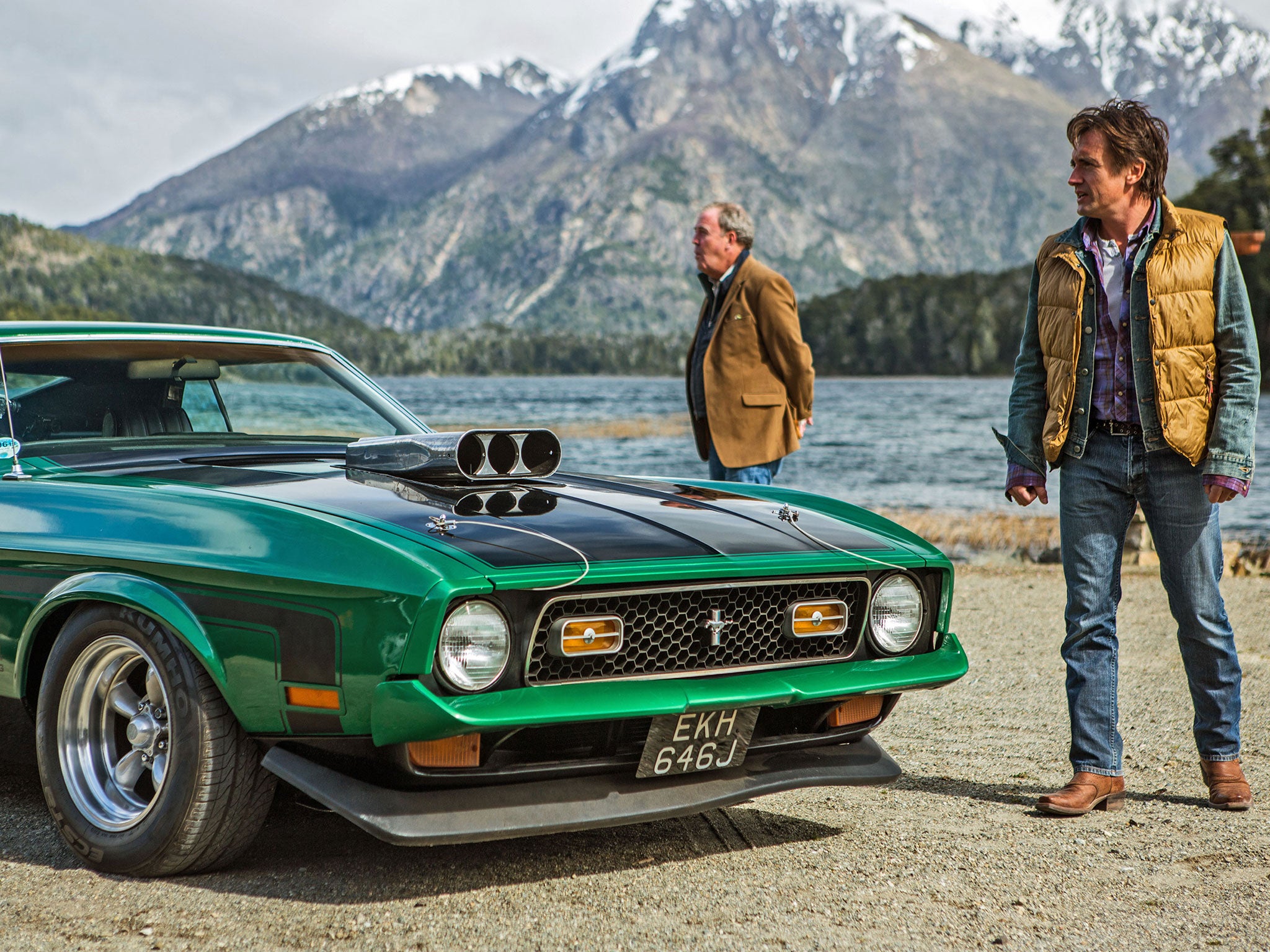Top Gear 'is not trusted by BBC' says show's executive producer Andy Wilman
Wilman said he could do with a "bit less telling off" he said

Your support helps us to tell the story
From reproductive rights to climate change to Big Tech, The Independent is on the ground when the story is developing. Whether it's investigating the financials of Elon Musk's pro-Trump PAC or producing our latest documentary, 'The A Word', which shines a light on the American women fighting for reproductive rights, we know how important it is to parse out the facts from the messaging.
At such a critical moment in US history, we need reporters on the ground. Your donation allows us to keep sending journalists to speak to both sides of the story.
The Independent is trusted by Americans across the entire political spectrum. And unlike many other quality news outlets, we choose not to lock Americans out of our reporting and analysis with paywalls. We believe quality journalism should be available to everyone, paid for by those who can afford it.
Your support makes all the difference.Top Gear’s executive producer has said the BBC “does not trust” the show’s staff, after it was embroiled in controversy last year.
Andy Wilman defended the programme's record in an interview with Broadcast magazine, a year after the programme was mired in several rows over offensive content.
While he admitted that Jeremy Clarkson’s use of the racial slur “slope” in a special set in Burma was "not defensible", he said he was "bored" of defending a controversial edition set in Argentina.
Programme makers were forced to explain why a car number plate in the two-part special read: “H982 FKL” – an apparent reference to the 1982 Falklands war against Argentina.
The outrage caused in the south American country saw the crew flee from Argentina, after they were chased by former veterans.
But Wilman insisted the number plate was a coincidence, adding he would never knowingly “jeopardise a whole show” by “winding up” war veterans.
When Wilman was asked whether Top Gear received enough support from the BBC when it was under fire, he paused, before answering “sometimes yes, sometimes no”, adding that the broadcaster likes the programme when it’s “naughty” but “under control”.
Describing how the show “walk[s] on a tightrope most of the time” it will inevitably “sometimes…fall of it”.
“And if you do, that's when the BBC is not a fan.
He added: “Sometimes, I feel they don't trust us at heart.”
Wilman was keen to highlight that Top Gear’s reputation wrongly precedes it, as it has only breached the Ofcom Broadcasting Code twice since 2002.

Watch Apple TV+ free for 7 days
New subscribers only. £8.99/mo. after free trial. Plan auto-renews until cancelled

Watch Apple TV+ free for 7 days
New subscribers only. £8.99/mo. after free trial. Plan auto-renews until cancelled
"You can't achieve that kind of record if the show itself isn't smart about what it's doing," he argued.
The show broke the code shortly after the Burma episode, in which presenters built a bridge on the River Kwai – in reference to the film about POWs.
A shot showed Clarkson glance at bridge he had completed, as a local man walked across. He then remarked: "That is a proud moment. But there's a slope on it."
Ofcom, who investigated after two viewers complained, said the use of the word "slope" was offensive and "not justified by context", BBC News reported.
Wilman admitted he did not realise it was offensive "in a bigger way", and thought it was a "sort of movie slang" and therefore didn't refer it to the BBC's editorial policy unit. He added if he had done so, the phrase would not have been broadcast.
But Wilman remained optimistic, and said conversations about a deal for a new series on BBC Two were “ongoing”.
"Our appetite is still there. We love the BBC - the notion and principle of the BBC. It's a wonderful place to be,” he said.
"I could do with a bit less telling off, but there you go."
Join our commenting forum
Join thought-provoking conversations, follow other Independent readers and see their replies
Comments